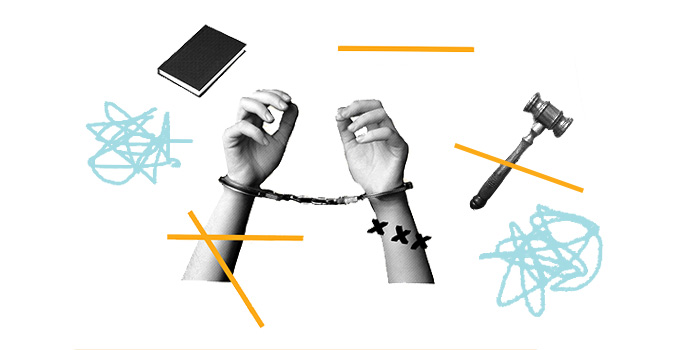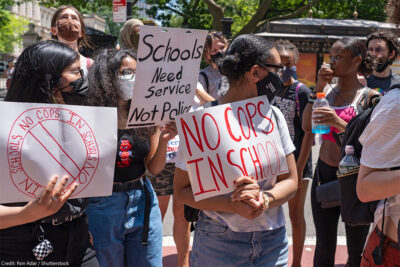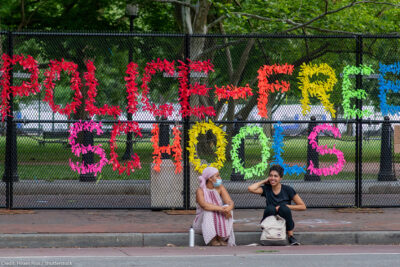Police Presence in Schools
The ACLU works in courts, legislatures, and communities to defend and preserve the individual rights and liberties that the Constitution and the laws of the United States guarantee everyone in this country.

Stay informed about our latest work in Police Presence in Schools.
By completing this form, I agree to receive occasional emails per the terms of the ACLU's privacy statement.
The Latest
Explore More
What's at Stake
Many under-resourced schools relyon police rather than teachers and administrators to maintain discipline. Growing numbers of districts employ school resource officers to patrol school hallways, often with little or no training in working with youth. As a result, children are far more likely to be subject to school-based arrests—the majority of which are for nonviolent offenses, such as disruptive behavior—than they were a generation ago. These arrests for minor infractions disproportionately target students of color and students with disabilities.
The ACLU is working to end overly aggressive school policing and unnecessary school arrests in several communities by promoting agreements (often referred to as Memorandums of Understanding or MOUs) between school districts, police departments, and other justice agencies. We are also challenging harmful school policing practices and policies through litigation and legislative reforms.
Many under-resourced schools relyon police rather than teachers and administrators to maintain discipline. Growing numbers of districts employ school resource officers to patrol school hallways, often with little or no training in working with youth. As a result, children are far more likely to be subject to school-based arrests—the majority of which are for nonviolent offenses, such as disruptive behavior—than they were a generation ago. These arrests for minor infractions disproportionately target students of color and students with disabilities.
The ACLU is working to end overly aggressive school policing and unnecessary school arrests in several communities by promoting agreements (often referred to as Memorandums of Understanding or MOUs) between school districts, police departments, and other justice agencies. We are also challenging harmful school policing practices and policies through litigation and legislative reforms.



